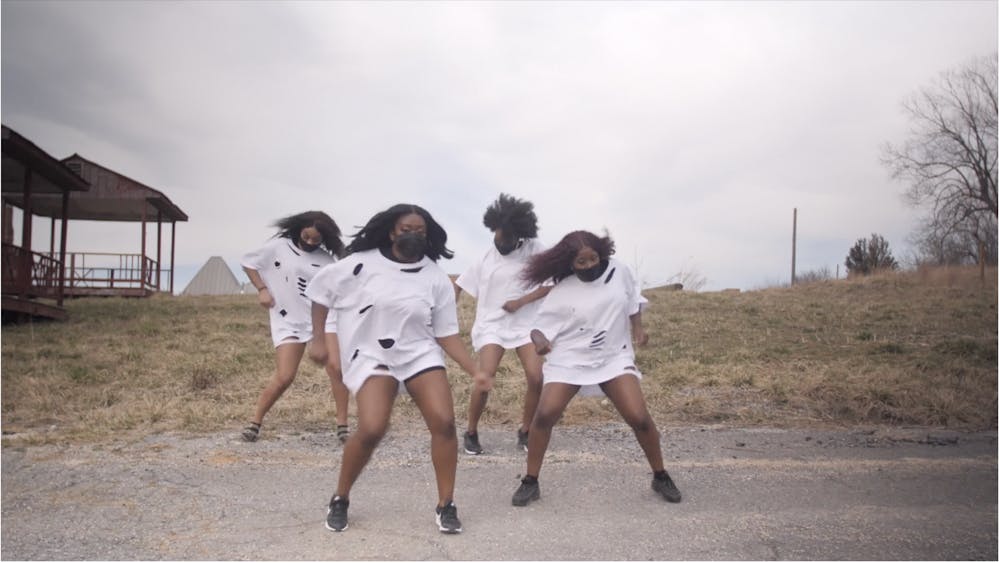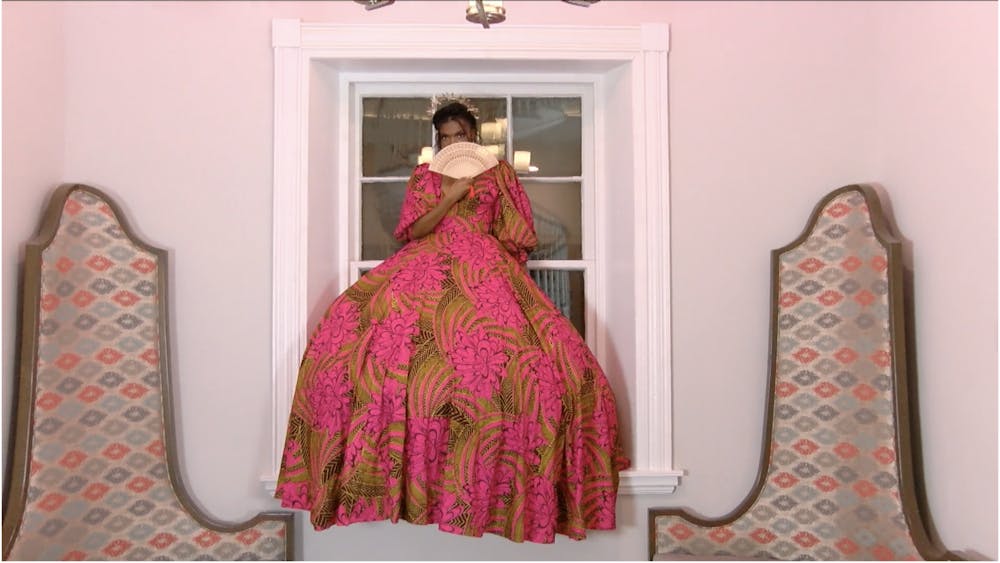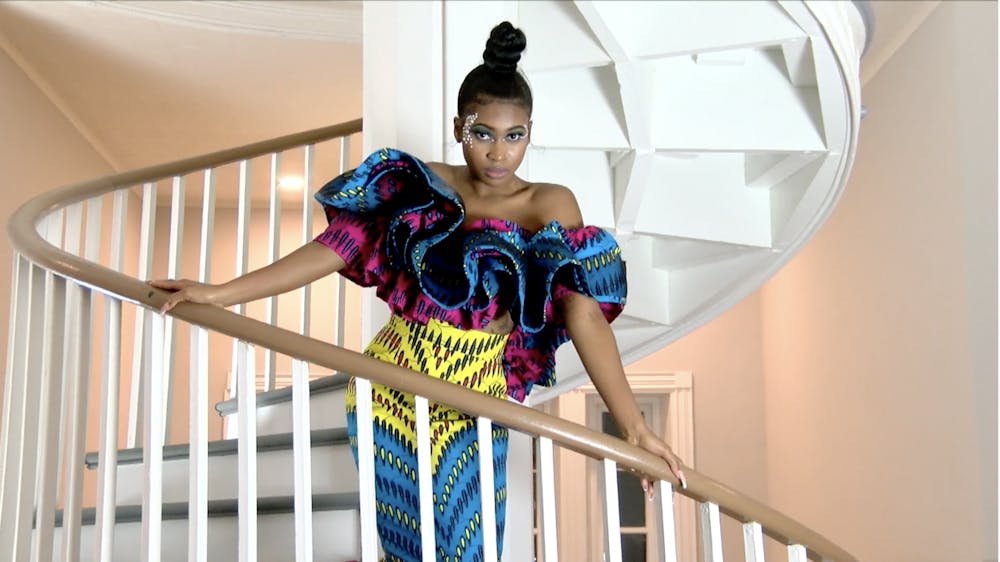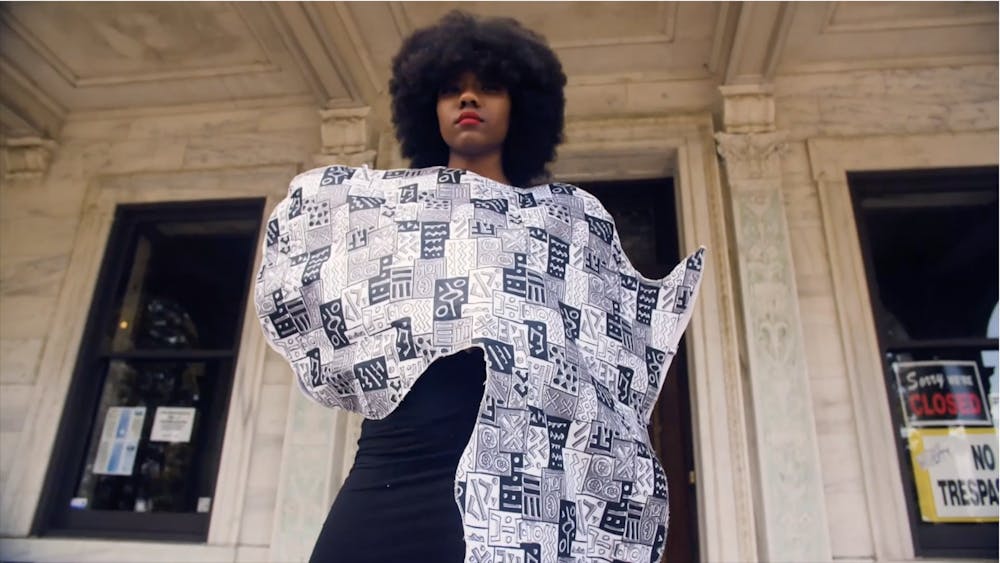The Organization of African Students hosted Africa Day on Friday, April 16 in the Amphitheater — an annual event that celebrates the many cultures found on the African continent. Last year, Africa Day was canceled because of the COVID-19 pandemic.
The performances had been filmed at different locations and were presented on a projector. The performances included dances, fashion, cast member games, an homage to Africa Day 2020, a flag presentation and a segment that asked what Africa Day meant to students.
The theme of this year's event was #IFARADA. Ifarada means resiliency in Yoruba — a West African language. The theme was influenced by the many African youth movements that have occurred this past year. These movements have sought social and civil rights and have taken to social media to organize and spread their message. Their slogans have been hashtagged and were seen by people all over social media. Examples include #EndSars in Nigeria, #CongoisBleeding in Congo, #ShutitAllDown in Namibia and many more.
Jasmine Obule, fourth-year College student and Africa Day creative director, wanted to draw attention to the reliance in the face of such adversity.
“The show is titled #IFARADA to show that throughout it all, the African community has remained resilient, courageous, bold, confident and strong,” Obule said. “We sought to show through our clothing and our powerful walks how bold and fearless we can be. We showed through our clothing and walks that we are not easily intimidated.”
In deciding whether to put on the show this year, Nma Okafor, fourth-year College student and OAS president, said that the executive board took into account the lack of social interaction and difficult mental health situations that students were facing. Africa Day was needed to provide students a social outlet and a break from reality.
Okafor said the format of the event was changed this year because of the uncertainty of the pandemic. The board decided that they wanted a video show in case they were not able to do anything in person. Due to the switch to a video show, the team had to take on nontraditional roles in addition to their regular roles.
Planning for the event normally starts the summer before, but this year planning began in January. The team met regularly over Zoom to plan and coordinate how they were going to film and produce Africa Day. Okafor said the show was filmed over a month before Africa Day and the filming happened over the course of a weekend.
"Everybody was booked Friday, Saturday, Sunday of that weekend and we were awake from 6 a.m. to 10 p.m. — some people later than that," Okafor said.
Okafor explained that organizing this event meant keeping up with a lot of moving parts. The person team was composed of models, photographers Nathaniel Diemer and Omer Gorashi, videographers Raed Gilliam and Demetri Workman, and a make-up team.
"We had to make sure that everyone had a negative COVID-19 test and was quarantining correctly for 14 days prior to filming," Okafor said. "During filming, we had to make sure we fed everyone for a whole weekend."
The video format allowed for new ideas to the show but also brought forth many edits.
“We decided that the show would be more interactive if models used the different locations they were provided and brought their creativity to the video while walking and posing in that setting,” Obule said. “We were able to record things multiple times to make sure we were putting out our best work.”
Okafor said the team worked hard to make sure the presentation of their work in the Amphitheater was safe and enjoyable. There were staggered arrival times for the audience and seats were also spread apart.
The night began with a celebration of the recipients of an OAS scholarship and it proceeded with speeches from Okafor and Obule. There was then a presentation of the flags for the 54 countries in Africa.
Afterward, there was a presentation about the theme of this year’s show — #IFARADA. Boule explained to the audience what Ifarada meant and why it was chosen. They also highlighted many youth movements for civil rights happening on the continent.
The night continued with the different sections of the show which had their own subtheme.
Fashion was a major part of the show, as demonstrated by the traditional prints the models wore. Okafor said the prints were beautiful, but she wanted to emphasize that a lot of the prints seen in this year’s show are West African prints and not representative of the entire continent. A lot of the prints were transferred from last year’s canceled show. The vibrant prints came from many West African countries. They were worn in both traditional styles and more Western clothing. The prints were vibrant and incorporated red, gold, pink and blue among some of the notable colors.
The prints were not the only reference to Africa Day 2020, the show included a tribute to last year’s Africa Day with a section called “Dear Africa Day 2020.”
Additionally, there were dance performances from the AfroHoos — a student dance group.
In other years the intermissions in the live shows were performances by student singers and rappers, but this year, the intermissions allowed the audience to better know the models. The models played a game where they were shown another model’s baby picture and had to identify the person. Another intermission saw the models describe what Africa Day meant to them in one word. The answers included “family,” “necessary,” “dynamic” and “Umoja” — the Swahili word for unity.
Obule said that Africa Day, while informative and important, can only provide a glimpse into the beauty of African cultures.
“We were able to show a glimpse of Africa, the beauty of our culture, clothing, and people,” Obule said. “However, it’s important to mention that this is not a representation of all of Africa as this is very hard to do in an hour and 10 minute show.”
For those more interested in learning more about Africa, Okafor said that the OAS is eager to help. Africa Day is one of the many events OAS produces to educate people about Africa’s numerous cultures and discredit myths about the continent. Okafor stressed that the organization is open to anyone with an interest in Africa.
"OAS is very inclusive to Africans as well as non-Africans who are interested in learning about the various cultures here that we have to offer," Okafor said.
More information about OAS can be found on its website www.oasatuva.org.










